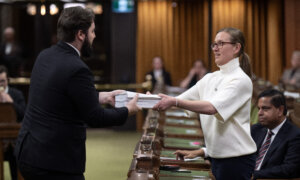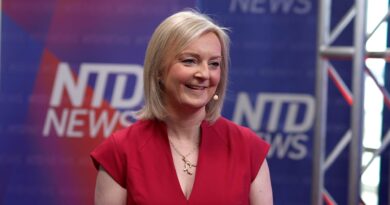Budget Watchdog Criticizes Fall Economic Statement for Minimizing Economic Risks and Ignoring Demographic Changes
The recent report by the Parliamentary Budget Office (PBO) revealed that the federal government’s Fall Economic Statement (FES) underestimated economic risks and failed to incorporate updated demographic data related to recent changes in immigration policy.
The PBO report highlighted that the FES presented limited economic scenarios, both optimistic and pessimistic, with a narrow range of potential outcomes involving temporary GDP shocks. The downside scenario predicted a GDP decrease of only 0.8 percent compared to the initial planning assumption for the same year.
According to the report, the government’s economic scenarios downplayed risks, especially in light of uncertain and volatile global conditions.
The Bank of Canada also expressed concerns in December about the economic outlook of Canada due to potential tariffs imposed by the incoming U.S. administration, creating increased uncertainty. President Donald Trump’s plan to impose tariffs on Canada further clouded Canada’s economic future.
The 2023 FES aimed to limit the deficit for that fiscal year to below $40.1 billion but the latest estimate placed it at $61.9 billion. This high deficit was attributed to unexpected expenses related to indigenous contingent liabilities and COVID-19 pandemic support.
The PBO report highlighted that even excluding one-time expenditures, the deficit would have been $40.8 billion. Revenues fell short by 0.3 percent, while program expenses were 3.1 percent higher than anticipated for the year.
Ottawa had a goal to maintain a declining debt-to-GDP ratio in 2023–2024, which it achieved with a ratio of 42.1 percent. However, the PBO report indicated that without a nominal GDP revision, the ratio would have been 42.8 percent.
Immigration Transparency
The report criticized Ottawa for lacking transparency in its immigration assumptions, which were not disclosed before changes in immigration policies were announced. Moreover, the economic forecasts by the PBO and private sector did not account for these policy shifts, affecting their accuracy.
Immigration, Refugees and Citizenship Canada significantly reduced immigration targets starting in 2025, impacting the population growth in Canada. This demographic change is expected to have a notable effect on economic scenarios, potentially leading to a downward revision.
The PBO plans to release its own assessment of the economic implications of Canada’s immigration plans later this winter.
Additionally, the delayed tabling of public accounts, released almost nine months after the fiscal year’s end, was noted as a concern. The PBO emphasized the importance of timely public accounts for better financial scrutiny by parliamentarians to evaluate the government’s budget plans.




